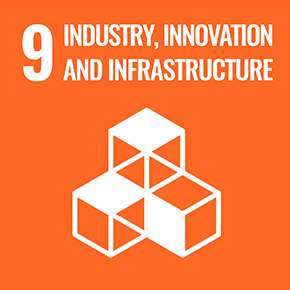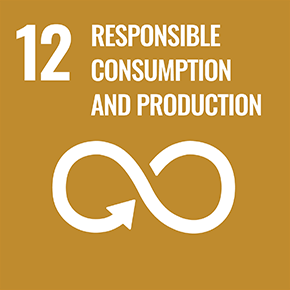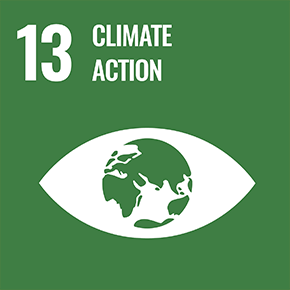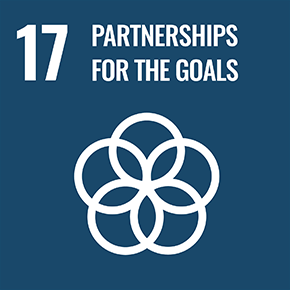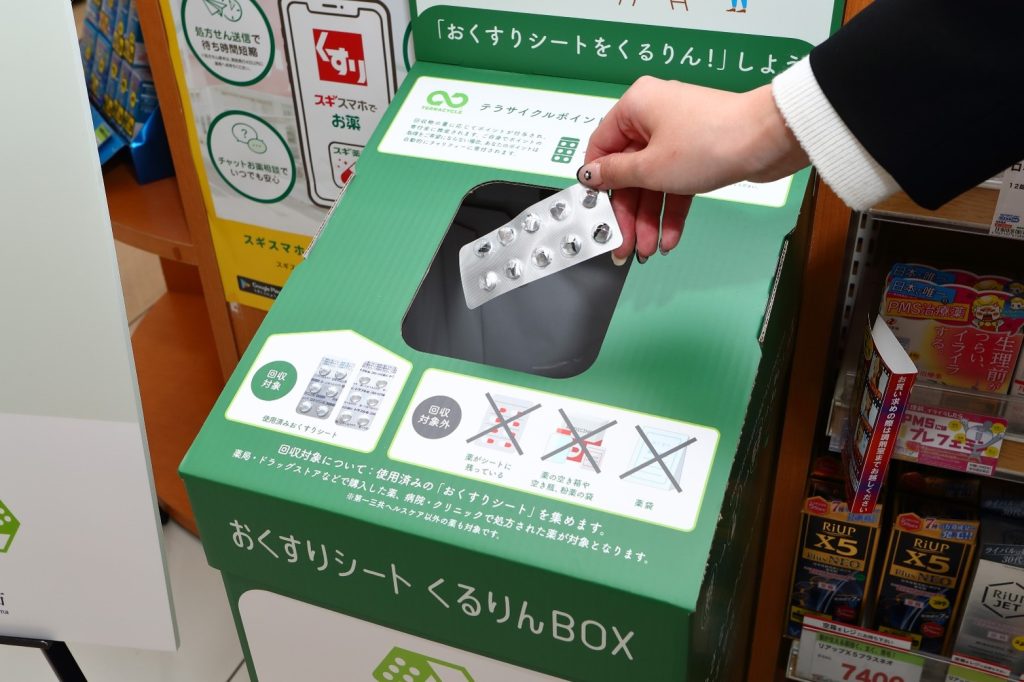
Synopsis
This is the first consumer-participatory initiative in Japan to collect and recycle used blister packs initiated by pharmaceutical companies, and the City of Yokohama is cooperating in the legal arrangement, selection of collection sites, and publicity to citizens. Based on performance expectation tested in demonstration experiments, we are developing the system in full-scale.
*PTP (Press Through Pack) : A method of packaging medication in which tablets or capsules are sandwiched between sheets of plastic and aluminum.
Implementation Period
Since October, 2022
Stakeholders and Partners
Resources and Waste Recycling Bureau of the City of Yokohama, Daiichi Sankyo Healthcare Co., Limited, TerraCycle Japan, LLC
Other collection sites include hospitals, dispensing pharmacies, Yokohama Pharmaceutical Association, Yokohama Community Care Plaza, etc.
Background, Challenges and Objectives
The importance of further promoting resource recycling of plastics in Japan has increased in response to the marine plastic litter issue, climate change, and the tightening of regulations on waste imports from other countries. In April 2022, Japan enacted the “Law Concerning the Promotion of Resource Recycling of Plastics” to strengthen the resource recycling system for plastics, which are used in a wide variety of products.
This law requires the promotion of plastic resource recycling and other initiatives (3R+Renewable) by all entities involved in the process, from product design to disposal of plastic waste.
In response to the enforcement of this law, businesses are taking various measures to switch from plastic to paper, wood, and other materials, and to reduce the amount of plastic materials used. However, some products cannot have their materials switched or reduced for hygienic reasons. These products are voluntarily collected and recycled.
Therefore, aiming to protect human health and natural environment, which are inseparable from one another, pharmaceutical companies decided to launch an initiative to voluntarily collect and recycle blister packs whose production is difficult to reduce due to their nature as packaging materials for pharmaceutical products. The City of Yokohama had high expectations for the realization of this project.
In addition, the City of Yokohama plans to expand the sorting and recycling of plastic waste (change of sorting rules) in some areas from October 2024, following the enforcement of the law, and is seeking to further promote trash sorting and recycling of plastic waste among citizens. As this initiative spreads, we hope that it will be widely deployed in voluntary collection and recycling initiatives by other businesses, and that citizens will participate in this initiative and contribute to the development of resource recycling for a variety of materials.Challenges include eliminating contamination by foreign materials during collection (5-10% in the demonstration test) and reducing transportation costs. Besides, the recycling process requires efficient recycling with low environmental impact, low cost, and high recycling rate, and TerraCycle Japan LLC is currently verifying how to achieve this.
(Horizontal recycling is desirable in the future, but not possible under the current Japanese Pharmacopoeia)
Actions and Implementation
October 2022 – September 2023 Demonstration experiment
※Started with 30 locations, but the amount collected greatly exceeded the target.
Expanded to 60 locations, 1,077 kg collected
October 2023 – Full-scale development (102 locations)
※Approximately 5,000 kg collected by the end of August 2024 after full-scale development.
Outcomes and Impacts
Along with the increasing awareness of citizens that even a small blister pack is an important resource, it led to a major behavioral change in actively bringing the packs to collection sites rather than having them being collected by the government. A secondary effect was also observed in local dispensing pharmacies, which confirmed that there were no leftover prescription medications, which also led to patient compliance instruction.
This case is an initiative with great potential to promote behavioral change among citizens regarding waste administration, and to expand into other initiatives for the implementation of a recycling-oriented society.

